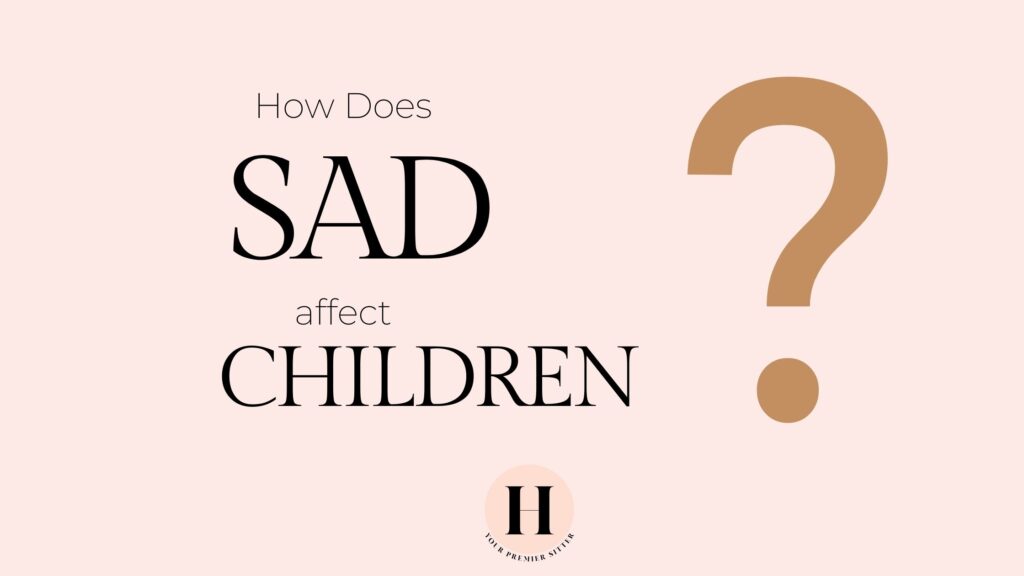Seasonal affective disorder (SAD) is depression that happens to a person only at a specific time of year. With SAD, a person becomes depressed in fall or winter, when days are shorter and it gets dark earlier.
When symptoms of SAD first start, parents might think that a lack of motivation, energy, and interest is due to a poor attitude. Learning about SAD can help them understand another possible reason for the changes, easing feelings of blame or impatience with their child or teen.

Talk to your doctor if you think your child has SAD. Health care providers can diagnose it by asking questions and listening. A health checkup can make sure that symptoms aren’t due to another condition.
If your child or teen is diagnosed with SAD, there are things you can do to help:
- Participate in your child’s treatment. Ask the doctor how you can best help your child.
- Help your child understand SAD. Learn about the disorder and provide simple explanations. Remember, staying focused might be hard, so it’s unlikely your child will want to read or study much about SAD — if so, just recap the main points.
- Encourage your child to get plenty of exercise and to spend time outdoors. Take a daily walk together.
- Find quality time. Spend a little extra time with your child — nothing special, just something low-key that doesn’t require much energy. Watch a movie or share a snack together. Your company and caring are important and provide personal contact and a sense of connection.
- Be patient. Don’t expect symptoms to ease right away. Remember that low motivation, low energy, and low mood are part of SAD.
- Help with homework. You may temporarily need to help your child organize assignments or do work. Explain that concentration problems are part of SAD and that things will get better. Kids and teens with SAD may not realize this and worry that they can’t do the schoolwork. You may also want to talk to the teachers and ask for extra time to do homework until things get better with treatment.
- Help your child to eat right. Encourage your child to avoid loading up on simple carbs and sugary snacks. Provide plenty of whole grains, vegetables, and fruits.
- Establish a sleep routine. Encourage your child to stick to a regular bedtime every day to get the mental health benefits of daytime light.
- Take it seriously. Don’t put off a doctor’s visit if you think your child has SAD. If diagnosed with SAD, your child should learn about the seasonal pattern of depression. Talk often about what’s happening, and reassure your child that things will get better, even though that may seem hard right now.
(source: kidshealth.org)




